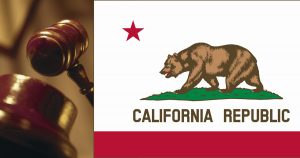NEW CALIFORNIA LABOR LAWS IN 2018
By Ward Heinrichs Esq., San Diego Employment Attorney
 From Minimum Wage to Harassment and Immigration, San Diego employment attorney Ward Heinrichs Esq. outlines the new California employment laws for 2018 on Big Blend Radio.
From Minimum Wage to Harassment and Immigration, San Diego employment attorney Ward Heinrichs Esq. outlines the new California employment laws for 2018 on Big Blend Radio.
Unless otherwise stated, the laws below will go into effect on January 1, 2018.
Minimum Wage Increase
Under the minimum wage law passed last year, minimum wage will increase again in California. For employers who have 26 or more employees, the state minimum wage will be $11.00. For employers who have 25 or fewer employees, the minimum wage will be $10.50 per hour. In the city of San Diego, California, the minimum wage for all employers will remain at $11.50 per hour, but will increase in 2019 by a cost of living adjustment yet to be determined. Many other cities in California have higher minimum wage rates than the state minimum wage.
The Federal Minimum Wage will remain the same. Last year, the Department of Labor (DOL) attempted to raise the minimum salary for exempt employees to $47,476.00 per year. A court blocked that, and the Trump Administration has backed away from that figure. However, the DOL seems ready to increase the minimum salary for exempt workers by a smaller amount. A smaller amount may not face a court challenge.
California Small Business Parental Leave
Businesses with 20 or more employees will now be required to provide 12 weeks of unpaid parental leave to bond with a baby, a newly placed foster child, or an adopted child. Before this new law passed, only employers with 50 or more employees had to provide parental leave. The leave must be taken within one year of the birth, foster placement, or adoption. While the employee is on leave, the employer must pay for any health care coverage it already provides and must provide a statement of guaranteed reinstatement.
Salary History Ban
In recent years, California increased unfair pay protections for women and other protected classes. This year, the legislature took that one step farther and now has banned employers from asking applicants about their pay histories.
California Ban the Box Law
“Ban the Box” refers to a check box on an employment application asking the applicant about past criminal history. In 2018, employers in California with 5 or more employees will not be able to seek criminal history information until making a conditional offer of employment. After that, an employer may not withdraw an offer because of criminal history until it has:
1) determined that the criminal history directly and adversely affects the job duties;
2) given the applicant notice and an opportunity to respond;
3) given a final denial of employment based on criminal history.
Immigration Work Place Protection
Under a new California law, employers may not allow immigration enforcement agents access to non-public areas of the work place unless the agent has a warrant. Further, employers may not give enforcement agents access to employee records without a subpoena or a warrant. However, the law allows an employer to give agents access to review I-9 forms and other employment documents that were requested in an agency notice of inspection. Within 72 hours of that notice, the employer must post a notice, with information specified by the state, about the upcoming inspection. Upon request, an affected employee may receive a copy of the agency notice of inspection. Within 72 hours, the employer must provide notice to affected employees of any inspection results it had received.
California Harassment Prevention Training
Businesses with 50 or more employees must provide two hours of harassment prevention training to all supervisors every two years. Now, the training must include harassment based on gender identity, gender expression, and sexual orientation.
Because of the recent headline cases on sexual harassment, any California employer should consider giving training to all employees. Harassment based on any protected status listed in the statutes is banned for nearly all employers in California, no matter how many employees they have. Harassment is banned under federal law for all employers who have 15 or more employees.
Certificate for Alcohol Servers
Any California business licensed to serve alcohol must ensure that all its servers receive alcohol responsibility training and receive a certificate for that training. This goes into effect in 2021.
Based in San Diego, California the Employment Law Office of Ward Heinrichs represents both employers and employees in almost all areas of labor law. He and his firm litigate cases that have been filed in many different parts of California. Visit www.BestEmploymentAttorneySanDiego.com


